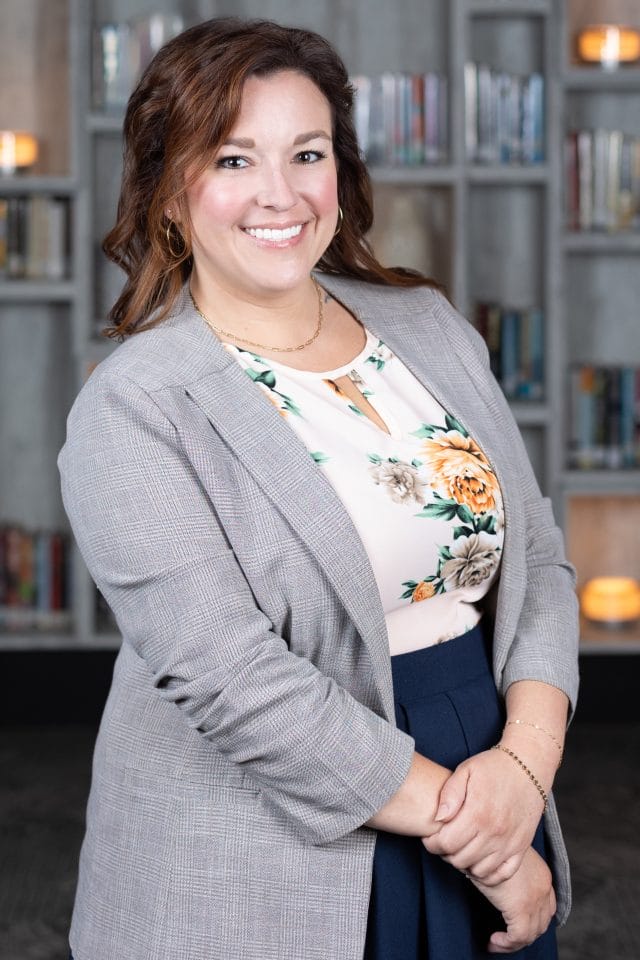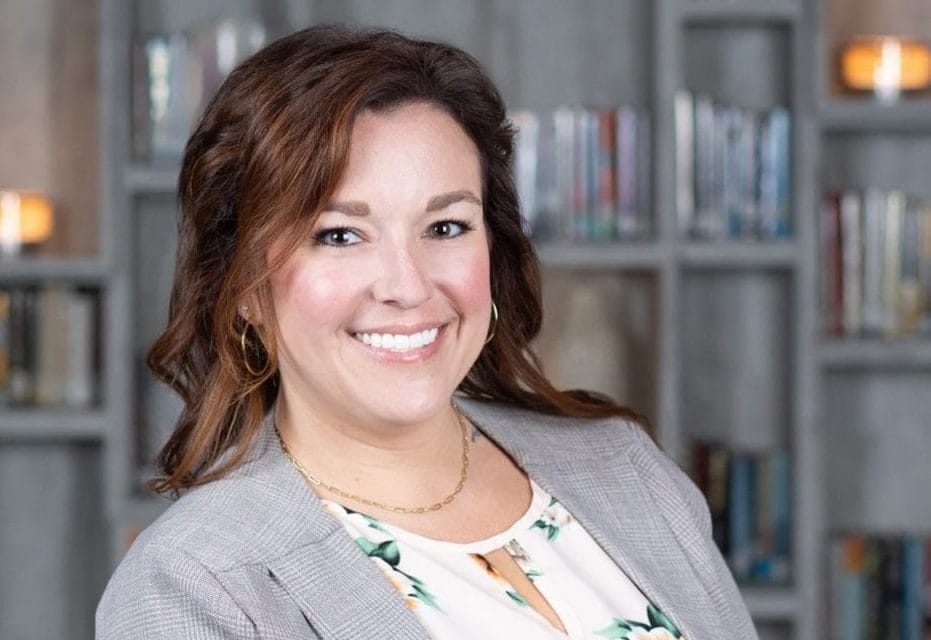Who Is Renee Petitjean?
Renee Petitjean is a Recruiting Manager at Marriott International who’s redefining how talent is chosen in hospitality. She’s the one who’s seen it all: candidates interviewing from their beds, people with flawless resumes falling short and quiet personalities overshadowed by a lack of preparation.
Renee’s philosophy is simple: Credentials don’t guarantee success — personality, persistence and the ability to connect do.
With years of experience in hospitality, she’s unapologetic about challenging outdated hiring practices and revealing what really works in one of the most competitive industries. If you think hospitality is all about formalities, Renee’s insights will make you question everything.
Read on for the full interview.
What drew you to this industry?
Renee: At first, it started as a summer job — something to get out of my hometown and explore something different. When I went to college, I changed my major four times, spending most of my college career studying nursing. However, one day, I realized that nursing felt a bit depressing for me.
At that time, I was working in a restaurant as either a Host or Server, and I absolutely loved it. The fast-paced environment, the variety in every day, and the joy of seeing my shifts fly by made me realize how much I enjoyed working in hospitality.
It’s funny because my mom actually suggested hospitality back in high school, but as a rebellious teen, I dismissed the idea. Years later, when I finally decided on hospitality as a career and earned my degree, I had to admit that sometimes, mothers really do know best!
Can you tell us more about the Marriott internship programs?
Renee: The Marriott internship programs are hotel-based and designed for individuals pursuing a bachelor’s degree or an associate’s degree, particularly if you’re in a culinary role. These internships are very much entry-level, hourly positions, meant to help you gain experience in roles you might not typically try.
The programs generally last about ten weeks. They’re a great “test” because if it turns out you don’t like the role, there’s an end date! However, even if it’s not a perfect fit, it’s an incredible learning opportunity.
Often, stepping into uncomfortable roles provides the greatest learning moments.
You can apply directly on the Marriott Careers website, where you can also set up alerts for openings that match your interests. Additionally, Marriott offers a post-graduate program called the Voyage Program for students about to graduate or who have graduated within the last 24 months. This program places you in roles such as Assistant Manager or Sous Chef, with a one-year timeline to develop your skills.
Do people who go through the internship program have a better chance of landing a job at Marriott?
Renee: Yes and no. While we don’t discriminate against candidates who haven’t done the internship, we do give priority scheduling to interns.
For example, with the Voyage Program, we open applications a month earlier for those who’ve participated in our internships, giving them “first dibs” before the roles are made public.
What positions are in high demand right now?
Renee: Marriott has a wide variety of roles available, including banquets, event planning, HR, sales, accounting, engineering, culinary, rooms operations and food and beverage. Some of the most in-demand roles are in the “rooms” division, which includes the front office and housekeeping, as well as food and beverage operations like restaurants.
While event planning, HR and sales roles tend to fill up quickly, operational roles like front office and food and beverage are essential for running a hotel smoothly. They also provide a chance to work closely with guests, offering unique service recovery opportunities when things don’t go as planned.
How should a CV be formatted to stand out from the crowd?
Renee: First and foremost, include your contact information. You’d be surprised how often this is overlooked! Also, avoid using columns in your resume as these can confuse AI screening software. Instead, stick to a simple, linear format.
Focus on showcasing your achievements rather than listing generic duties.
For example, instead of saying you were a Host, highlight specific contributions like being responsible for retail inventory or training new hires. Quantify your achievements whenever possible (e.g., “Increased sales by 15% over six months”).
Keep your resume concise — ideally one page unless you have over ten years of experience. Skills sections should include specialized tools or certifications, but avoid listing obvious ones like Microsoft Office.
Lastly, ensure your resume is free of errors, as a clean and professional document reflects attention to detail.
What are your top three interview questions?
Renee: We use a behavioral-based interview approach called STAR: Situation, Task, Action and Result. Here are my top three questions:
- “Tell me about a time you were overwhelmed.” – This question helps us understand your ability to prioritize, adapt, and stay calm under pressure.
- “Tell me about a time when you went above and beyond to make a customer happy.” – This is a great opportunity to showcase your problem-solving and customer service skills.
- “Tell me about a time you contributed to a team’s success.” – We want to hear about your teamwork and collaboration experiences.
What advice would you give to job seekers about answering interview questions?
Renee: Preparation is key. Practice answering questions out loud, even if it means walking around your house and talking to yourself — it really helps with your flow! Focus on being concise but detailed, and remember to format your answers clearly:
- Set up the story. Provide context — where were you, what was your role?
- Use “I” statements. This is your time to shine, so explain your personal contributions.
- End with the result. Many people forget to explain how their actions led to success, so be sure to tie everything back to the outcome.
It’s also completely fine to bring notes to an interview. If you need a moment to reference an example, say, “Let me quickly check my notes,” and ensure you pick the best story for the question.
When doing an interview, what are some things that you observe?
Renee: I will say that we now do all of our interviews virtually because we’ve found it’s easier for both the candidates and for scheduling purposes. I just want to add that caveat because things can feel different between virtual and in-person interviews.
Five years ago, you might have been expected to wear a blazer to every interview. Now, we’re fine with a nice blouse or a collared shirt. It’s more about presenting yourself well overall. Keep your hair groomed — no messy buns or oversized sweatshirts that might be fine for studying but aren’t ideal for an interview.

Another big thing is using your phone during an interview. If you’re using it, have it mounted. Holding it creates a constantly moving screen, which can be distracting and even nauseating.
Also, being outside or in a car for an interview might not disqualify you, but it shows a lack of preparation, which can raise doubts about your leadership or organizational skills.
In hospitality, guests respond to warmth and empathy. A deadpan demeanor or lack of engagement doesn’t work well in this industry.
Show a smile, show some personality; it makes a big difference, especially in a field like this where connecting with people is crucial. This applies even outside of hospitality. Whether it’s building relationships with clients or collaborating with colleagues, having a positive and approachable demeanor always helps.
How long can the hiring process take for an entry-level role versus a management position?
Renee: The length of the hiring process can vary depending on the role and the person. For internships, the process used to be quicker when my team handled recruitment directly. Now that it’s decentralized to individual hotels, the process might take a bit longer, often between one to two months.
For direct placement roles (positions applied to through the Marriott website), job postings are considered “aged” after 60 days.
If a role has been posted for over 45 days, it’s likely either about to close, be canceled or reposted. If reposted, you should apply as soon as it reopens to stand out as an early applicant.
For the Voyage Program, the timeline depends largely on how quickly candidates complete each step. Most candidates go from application to offer in about two and a half weeks, though this can vary. I aim to move candidates to the next stage daily, as long as they’re keeping up with the process.
What are some employer green flags that candidates should look for?
Renee: Look for a company that aligns with your personal values. For example, integrity is very important to me, and I appreciate working in an environment where I feel supported when raising concerns. A good employer listens to their team and addresses issues rather than retaliating.
Longevity is another great indicator. If employees stay for decades, it says a lot about the company culture.
At Marriott, the “put people first” mindset has been consistent across locations, and it’s part of what makes me enjoy coming to work every day.
How important is the job description when applying or hiring?
Renee: It’s important but don’t get hung up on it. Many companies are flexible with qualifications. Statistics show women and minorities often won’t apply unless they meet all requirements, but here’s the thing…
You should apply even if you don’t check every box. What’s the worst that can happen? If it only takes a few minutes to submit an application, it’s worth the chance.
What skills or behavior should employees work on to get promoted?
Renee: Advocate for yourself. Early in my career, I felt frustrated when I wasn’t getting what I wanted but hadn’t spoken up. Once I started scheduling time with leaders and clearly stating my goals, things changed.
Be proactive about learning — seek opportunities and take initiative. Pair this with delivering strong results, and leadership will notice.
Remember, no one will care about your career as much as you do, so it’s up to you to guide it.
What’s a realistic timeline for a promotion?
Renee: A reasonable timeline is about 12 to 18 months, assuming strong performance, good guest feedback and no disciplinary actions. It also depends on whether you’re seeking full-time advancement or staying in a more flexible role.
What’s one thing you wish you’d known before starting in hospitality?
Renee: I wish I’d known how much room there is to grow and how many different avenues you can explore. Early on, I focused on food and beverage but could have tried roles in banquets or sales.
The great thing about this industry is that you can pivot at any time. You’re not locked into one path, and it’s never too late to try something new. You have so much time in your career to adjust and explore.
What is your favorite part about working in hospitality?
Renee: For me, it’s the fast pace and variety. No two days are the same. My background is in food and beverage, where I loved the dynamic nature of managing multiple outlets, juggling different menus and handling diverse styles of service.
One of my favorite aspects is service recovery. Unlike standalone restaurants, where a bad experience might end in frustration, hotels provide an opportunity to win guests over during their stay.
Turning someone’s experience around can be incredibly rewarding, and it’s a big reason why I love the lodging side of the industry.
Lessons We Can All Learn
Whether you’re an employer seeking the perfect candidate or an employee striving to make an impact, the key takeaway is simple: Authenticity wins. Be genuine in how you present yourself, whether on your resume, during an interview or in the workplace. Personality and a positive attitude are just as critical as skills.
For employers, this means fostering an environment where people feel valued, heard, and encouraged to grow will naturally attract and retain talent. As for employees, take ownership of your career. Speak up about your goals, embrace learning opportunities — and don’t shy away from challenges that push you out of your comfort zone.




